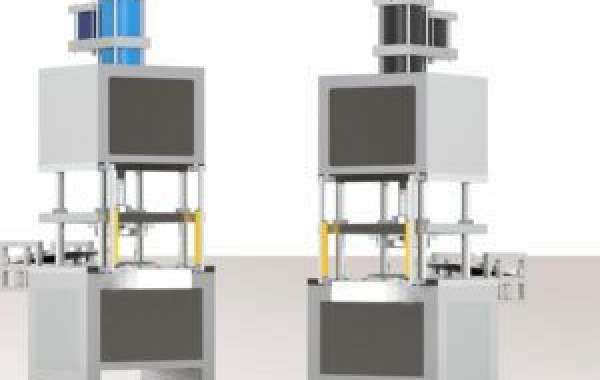In a world where environmental concerns and sustainability are paramount, industries across the board are seeking innovative ways to reduce their ecological footprint. One such industry that has gained prominence in recent years is the molded fiber industry. This unassuming sector plays a crucial role in producing sustainable and eco-friendly packaging solutions. In this blog post, we will explore what the molded fiber industry is, how it works, its environmental benefits, and its potential for the future.
Understanding Molded Fiber
Molded fiber, also known as molded pulp, is a type of packaging material made from paper pulp. It is renowned for its versatility, sustainability, and cost-effectiveness. The molded fiber manufacturing process involves the following key steps:
Pulp Preparation: The process begins with the creation of pulp. This can be done using various raw materials, including wood fibers, recycled paper, agricultural residues, and even some non-wood fibers.
Molding: The prepared pulp is placed in molds that are shaped according to the desired end product, such as trays, containers, or packaging inserts.
Drying: The molded pulp products are then subjected to a drying process to remove moisture and achieve the desired rigidity.
Finishing: After drying, the molded products can undergo additional processes like trimming, cutting, or printing for customization and quality control.
Eco-Friendly Advantages
The molded fiber industry is gaining attention for several compelling reasons, primarily its environmental benefits:
Biodegradability: Molded fiber products are biodegradable and compostable, making them an eco-friendly alternative to plastic packaging. They break down naturally without leaving behind harmful residues.
Renewable Resources: The primary raw material for molded fiber, wood fibers, can be sourced from sustainably managed forests. Additionally, many molded fiber manufacturers use recycled paper in their production, further reducing the industry's environmental impact.
Energy Efficiency: The manufacturing process for molded fiber generally consumes less energy compared to some other packaging materials, such as plastic or glass.
Reduced Waste: Molded fiber is often made using waste materials or by-products from other industries, contributing to waste reduction efforts.
Versatility: Molded fiber products can be customized to fit various shapes and sizes, making them suitable for a wide range of applications.
Applications of Molded Fiber
The versatility of molded fiber products has led to their use in numerous industries and applications:
Food Packaging: Molded fiber trays and containers are commonly used for packaging food items like eggs, fruits, and takeout containers.
Electronics: Molded fiber inserts are used to protect delicate electronics during shipping.
Medical and Pharmaceutical: Molded fiber can be used for packaging medical instruments and pharmaceutical products.
Industrial: Molded fiber is used in various industrial applications, including as insulation and protective packaging.
Consumer Goods: Products like molded fiber wine bottle shippers and cosmetic packaging are increasingly popular.
Automotive: Molded fiber is used for packaging automotive parts, reducing the need for plastic or foam.
Challenges and Innovations
While molded fiber offers a multitude of advantages, it also faces certain challenges:
Moisture Sensitivity: Molded fiber products can be sensitive to moisture, which can affect their structural integrity. Coatings or treatments are sometimes applied to mitigate this issue.
Production Speed: The manufacturing process for molded fiber can be slower compared to some other materials, which may affect production efficiency.
Cost: While molded fiber is cost-effective in many cases, it may still be more expensive than conventional plastic options.
To address these challenges, the industry is constantly innovating. Manufacturers are developing new formulations and technologies to improve the moisture resistance, production speed, and cost-effectiveness of molded fiber products.
The Future of Molded Fiber
The molded fiber industry is poised for substantial growth in the coming years, driven by both consumer demand for sustainable packaging and regulatory pressures to reduce single-use plastics. Here are some key trends and developments to watch for:
Customization: Manufacturers are investing in technology to create highly customized molded fiber products that meet the unique needs of various industries.
Material Innovation: Research is ongoing to explore alternative raw materials for molded fiber, including agricultural residues and non-wood fibers.
Market Expansion: As awareness of molded fiber's environmental benefits grows, it is likely to find new applications in industries such as automotive, electronics, and healthcare.
Global Adoption: The adoption of molded fiber packaging is expected to expand worldwide, driven by sustainability concerns and evolving consumer preferences.
Circular Economy: The industry is exploring ways to integrate molded fiber products into the circular economy, ensuring that they are recycled or composted at the end of their life cycle.
Conclusion
The molded fiber industry may not be as well-known as some other sectors, but its role in the pursuit of sustainability is significant. As consumers and businesses alike seek eco-friendly alternatives to traditional packaging materials, molded fiber has emerged as a compelling solution. Its biodegradability, use of renewable resources, and versatility make it a valuable player in the effort to reduce environmental impact. As innovation continues to drive improvements in the industry, we can expect molded fiber to play an increasingly prominent role in shaping the future of sustainable packaging.
also see:
Sugarcane Bagasse Pulp Moulding Machine






